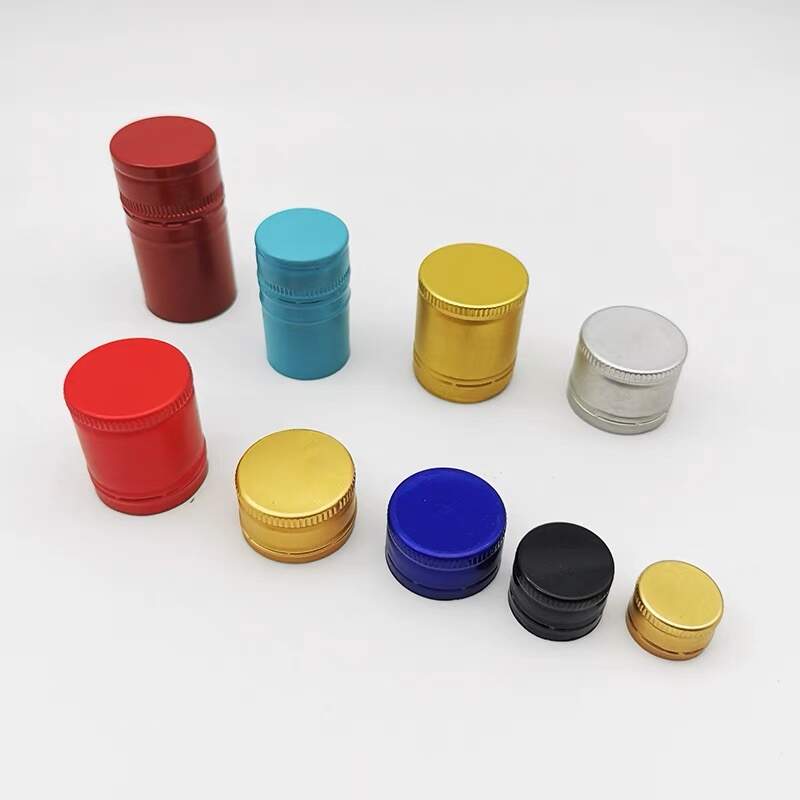

Email format error
Email cannot be empty
Email already exists
6-20 characters(letters plus numbers only)
The password is inconsistent
Email format error
Email cannot be empty
Email does not exist
6-20 characters(letters plus numbers only)
The password is inconsistent



When we think about the beverage industry, our minds often go to the refreshing drinks themselves, the vibrant packaging, or even the catchy advertising campaigns. But there’s one crucial component that’s often overlooked: the bottle cap. This seemingly simple piece of packaging plays a vital role in preserving the quality of our favorite beverages and ensuring they reach us in perfect condition. Behind this small but mighty component lies a fascinating industry—bottle cap manufacturing companies.
Bottle caps might seem insignificant, but their role is anything but minor. They are the unsung heroes of the beverage world, ensuring that products remain fresh, safe, and tamper-evident. These caps are designed to create an airtight seal that prevents contamination and preserves the drink’s taste and quality.
So, how does a bottle cap come into being? The process involves several stages, starting with the design. Bottle cap manufacturing companies employ skilled engineers and designers who craft the initial prototypes. These prototypes undergo rigorous testing to ensure they meet the necessary standards for sealing, durability, and ease of use.
Once the design is finalized, the production process begins. The materials used for bottle caps vary, but plastic is the most common due to its cost-effectiveness and versatility. The process typically involves the following steps:
1. Injection Molding: Plastic pellets are heated and injected into molds to create the basic cap shape. This step is crucial for achieving the precise dimensions and fit required.
2. Labeling and Printing: Many bottle caps feature branding or informational labels. This step involves printing these designs onto the caps, ensuring they are clear and durable.
3. Quality Control: Before the caps leave the factory, they undergo thorough inspection to ensure they meet all quality standards. This includes checking for proper sealing performance and overall integrity.
Bottle cap manufacturing companies produce a variety of caps to suit different types of bottles and beverages. Here are a few examples:
- Screw Caps: Commonly used for beverages like water, soda, and juice, screw caps are easy to open and close, providing a secure seal.
- Crown Caps: Often seen on beer bottles, crown caps have a crimped edge that creates a tight seal, keeping the carbonation intact.
- Flip-Top Caps: These are popular for sauces and condiments. They offer convenience and are resealable, making them ideal for products used multiple times.
- Pumps and Sprayers: Used for products like cleaning solutions and cosmetics, these caps come with built-in pumps or sprayers for easy dispensing.

In recent years, sustainability has become a significant concern in the manufacturing industry, including bottle cap manufacturing. Companies are increasingly focusing on creating eco-friendly caps and reducing their environmental footprint. This includes using recycled materials, designing caps for easy recycling, and reducing overall plastic use.
The industry is constantly evolving, with new technologies and innovations shaping the future of bottle cap manufacturing. Some exciting developments include:
- Smart Caps: These caps incorporate technology to monitor the freshness of the beverage or even track consumption. They can connect to smartphones or other devices, offering a high-tech solution to product management.
- Tamper-Evident Designs: Advances in tamper-evident technology ensure that consumers can easily tell if a product has been compromised, enhancing safety and trust.
- Customizable Designs: With the rise of personalized products, many companies are offering customizable bottle caps that can be tailored to specific branding or consumer preferences.
Despite its vital role, the bottle cap manufacturing industry faces several challenges. One major issue is the fluctuating cost of raw materials, which can impact production costs and pricing. Additionally, companies must navigate complex regulations and standards to ensure their products meet safety and quality requirements.
Another challenge is the need to balance functionality with aesthetics. While bottle caps must perform their sealing function effectively, they also need to be visually appealing and align with the brand’s image.
Bottle cap manufacturing is a global industry, with companies operating in various countries around the world. Different regions have their own market dynamics, regulatory standards, and consumer preferences, which influence the types of bottle caps produced.
In countries with a strong beverage industry, such as the United States, Germany, and Japan, there is a high demand for innovative and high-quality bottle caps. Emerging markets in Asia and Africa are also seeing growth, driven by increasing consumption of bottled beverages.
Bottle cap manufacturing companies play a crucial role in the beverage industry, ensuring that products reach consumers in the best possible condition. From the design and production process to innovations and sustainability efforts, the industry is continually evolving to meet the needs of both manufacturers and consumers.
Next time you unscrew a bottle cap, take a moment to appreciate the complex world behind this small but essential component. The next refreshing sip you take is thanks to the dedicated efforts of bottle cap manufacturing companies working tirelessly to keep your favorite beverages fresh and secure.